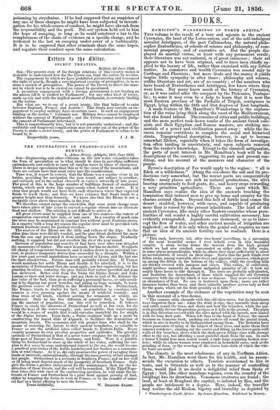talus to t#t Eititur. SECRET TREATIES.
Belfast, 2d June 1856. • Sra—The present state of the foreign relations of this country makes it desirable to understand how far the Crown can bind the nation by treaties. The engagement by which we have prohibited privateering and renounced the right of search, though a very important exercise of prerogative, is in no sense a stretch of prerogative. The power of the Crown to direct the man- ner in which war is to be carried on cannot be questioned.
A pecuniary engagement with a foreign government is not binding on the nation till it is ratified by Parliament; but any other kind of treaty, made openly and with the implied assent of Parliament, is certainly binding on the nation.
But what are we to say of a secret treaty, like that believed to exist between England, France and Austria ? This treaty may contain an en- gagement to employ military force in certain cases. • Is such an engagement binding on the nation ? Certainly not. Military force cannot be employed without the consent of Parliament and the Crown cannot secretly pledge the consent of Parliament beforehand.
This is unquestionably true, but it is not generally understood ; and dis- creditable and dangerous complications may yet arise out of the power of the Crown to make a secret treaty, and the power of Parliament to refuse to be bound by it.


























 Previous page
Previous page